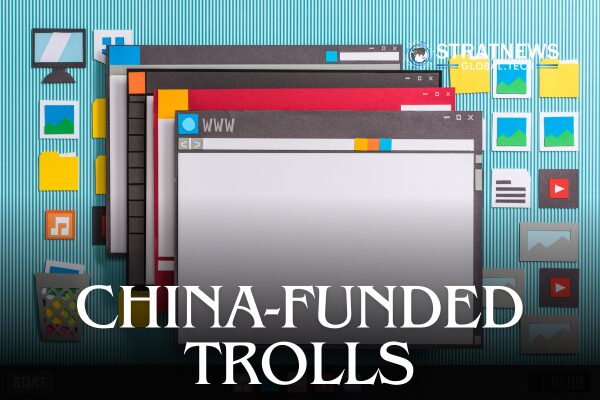China-Backed Troll Campaign Targeted Philippine Opinion and US Alliance, Documents Reveal
China funded a coordinated online campaign in the Philippines aimed at weakening public support for Manila’s alliance with the US and promoting pro-Beijing narratives, according to internal documents reviewed by Reuters.
Fake Profiles and Paid Influence
In November 2021, as Chinese ships clashed with Philippine vessels in the South China Sea, the Chinese embassy in Manila ran social media posts inviting Filipinos to share what they liked about China. Among the many replies were comments from fake Facebook profiles, including one under the name “Vince Dimaano.”
These accounts were part of a larger network managed by InfinitUs Marketing Solutions, a Manila-based company paid by China’s embassy, according to documents and interviews with two former employees and Philippine officials. InfinitUs reportedly operated a “troll army” that spread pro-China content, attacked critics, and amplified anti-US sentiment.
The company also ran a media outlet, Ni Hao Manila, designed to appear Filipino-owned while promoting Chinese perspectives. Some of its content was shared by the fake profiles to increase visibility.
Targeting the US Alliance and Domestic Politics
InfinitUs’s activities extended beyond promoting China’s image. The firm used fake accounts to discredit the US-Philippine security partnership, criticise Western-made COVID-19 vaccines, and attack lawmakers supportive of stronger maritime defence. One document reviewed by Reuters described an “aggressive comment campaign” against Congressman Robert Ace Barbers after he pushed legislation strengthening the country’s maritime claims.
According to a November 2024 report, the troll army also spread disinformation about the US deploying Typhon missiles in the Philippines. “Army always supports the advocacies and activities of the Chinese ambassador’s page,” one company report stated.
Meta, Facebook’s parent company, confirmed the removal of several fake accounts after Reuters alerted it to the activity.
Rewards and Influence Networks
InfinitUs’s work overlapped with efforts by the Association for Philippines-China Understanding (APCU), a group re-established by former president Gloria Arroyo and a Chinese Communist Party agency. APCU awarded cash prizes—sometimes several thousand dollars—to Filipino officials, media personalities, and academics for promoting closer ties with Beijing.
Among the recipients was Rommel Banlaoi, a counter-terrorism scholar previously nominated for a national security post, and several other figures who have publicly supported China. Some of these individuals’ work was shared or referenced by InfinitUs-controlled accounts.
Growing Digital Proxy War
Analysts say China’s actions in the Philippines mirror its broader information strategy, using social media to shape narratives and influence public opinion. “The end goal is to make the Philippines compliant,” said former senator Francis Tolentino, who first raised concerns about InfinitUs in a Senate hearing.
Experts also note that both China and the US have engaged in competing influence operations. During the pandemic, Washington reportedly used fake accounts to criticise Chinese vaccines, while Beijing expanded its own propaganda networks.
Philippine officials have since called for stronger laws against foreign interference and disinformation. “Operations that undermine democratic discourse or spread discord are unacceptable,” a US State Department spokesperson said.
Despite widespread awareness of Beijing’s tactics, surveys suggest that social media remains a powerful tool for shaping Filipino opinion. With elections approaching in 2028, experts warn that online influence efforts—both foreign and domestic—could play a major role in the country’s political landscape.
with inputs from Reuters


